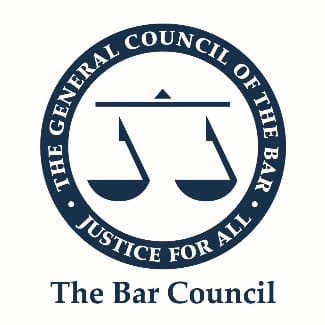Private Alternative Dispute Resolution (pADR) – a Still Much Under-Used Process
A few introductory thoughts – the bigger picture
The legal profession is notoriously slow at embracing change whether it is to the substantive law or, more often, to process. Every attempt to make the system work better and to the advantage of the punters is customarily met with a shaking of the head, a sucking of the teeth or a digging in of the heels… or a combination of the three. The slow development of the various forms of Private ADR process has been a classic example, although there may, at last, be signs that the impact of covid has stirred things up a bit. I can remember, back in the day before the millennium, when very occasionally a more enlightened party might suggest, sotto voce, that a dispute might be better resolved outside the court arena only to be met with a stream of objections. I also well remember acting for a very nervous lady in the early 1990s and inviting Lord Justice Purchas, recently retired, to deal with it privately by way of an informal arbitration in a London solicitors’ office. It was very simple innovation and very popular with the clients. But it was a one-off and not repeated in my experience until well into the 2000s.
The arrival in the mid-nineties of the new AR rules incorporating the mandatory FDR and standardised documentation (the 25th anniversary of which we have recently been remembering and celebrating) certainly began a new era and planted and nurtured the seed of the idea that this more streamlined process could just as easily be employed in a private setting as in the conventional public court arena. No real expansion of the system took place until after Bennett J retired from the High Court in 2010 when momentum gathered as he began to conduct private FDRs (PFDR) as a matter of routine in larger cases. By the time I ‘stepped down’ from the bench in 2014 the PFDR was much better established and I was able to slot into the groove almost seamlessly. And the pandemic has provided an additional stimulus to the growth of the private sector as backlogs, especially in financial cases, have mushroomed and Zoom hearings have proved to be a very practical solution to the restrictions on live hearings imposed by the lockdowns of varying severity. But there is surely a great deal of room for significant further expansion of private services? The use of out of court systems is still a long way from becoming routine let alone the first port of call in resolving financial issues. Old habits take a long time to die.
So why this reticence when, entirely predictably, anecdotal reports as to satisfaction levels are invariably favourable?
I think the residual reluctance is born of two hard-wired beliefs and attitudes. The first is that it is considered by some to be somehow slightly anti-social to jump the public queue by paying to do so (cf. the private medical sector versus the NHS). The accepted assumption is that everyone, from whatever walk of life, should stand in the same line and wait their turn. The second, even more entrenched view, is that disputes generated by family breakdown should properly be resolved by state intervention, personnel and machinery rather than the potentially speedier and slicker private systems.
But surely both attitudes are nowadays both misdirected and antediluvian? Let me deal with them swiftly.
In terms of so called social responsibility there is no proper or useful comparison to be made between the use of private medicine and pADR. On the contrary, unlike paying privately to use medical professionals, which necessarily prevents them from carrying out their allocated work in the NHS by reducing the available pool, the use of pADR is a positive benefit to society, freeing up as it does scarce public judges/courts to deal with other and more pressing and complex disputes. Until such time as judges are allowed to ‘moonlight’ their expertise (i.e. never), from the public benefit point of view the more cases are removed from the public into private lists the better for all. Paying to avoid the court queues is therefore of truly public benefit, very socially responsible.
Similarly, the attitude that such disputes are properly and primarily matters for resolution by state intervention is now surely misdirected. The entrenched belief that only the state can and should determine and manage the impact of family breakdown is born of the historic belief and attitude that marriage is fundamentally a matter for the state to regulate both in its formation and thus also in all aspects of its dissolution. But it is time that this age old approach was eradicated from our professional minds, acting as it does as a real if hidden drag on progress.
Of course it is true that marriage was originally regulated by the church and later the state as being good for society. As such terminating marriage was a matter of serious public import, notoriety and immorality only to be managed by officials appointed by the sovereign, viz. the judges and courts. Remember that during my lifetime no divorcee was ever allowed into the royal enclosure at Ascot (which nowadays would have excluded most of the Royal family!).
It was this attitude which drove marriage law, divorce law and financial arrangements post-divorce, and I fear that it is this attitude which still bedevils real progress in our thinking, especially among some of our politicians who resolutely refuse to give this area of our private lives proper time for reconsideration and reform. As we all know, the statutory laws related to financial distribution are now almost half a century old and, if we can agree about one thing, it is that society has undergone a total revolution in social attitudes during that time including especially the rationale behind the division of the spoils of family breakdown. Instead all meaningful reform has been carried out piecemeal on a case by case basis by the judges.
Perhaps one of the most graphic example of judicial reform is the wholesale binning of the Victorian prohibition on pre-nups in favour of the modern approach to enforceability based on personal autonomy. Remember Lord Phillips’ memorable words:
‘Autonomy
78. The reason why the court should give weight to a nuptial agreement is that there should be respect for individual autonomy. The court should accord respect to the decision of a married couple as to the manner in which their financial affairs should be regulated. It would be paternalistic and patronising to override their agreement simply on the basis that the court knows best.’
Remember, too, recent research by Marriage Foundation that:
‘1 in 5 couples married since 2000 may have some form of prenup in place, finds first-ever research on the subject.’
So they are no longer as rare a hen’s teeth but increasingly popular.
So let us embrace the new autonomous approach to committed relationships both married and unmarried and the available private procedures which accompany them which enable and encourage couples to fashion their own escape clauses and solutions. I would now advocate that ordinary family disputes, both large and not so large, should routinely be handled outside the public courts leaving them to handle the vast number of cases which necessarily involve state participation and adjudication either at national or local government level.
But leaving aside the broad policy considerations, what are the real and practical advantages to private dispute resolution?
Mediation
Mediation is of course where we start and, in theory, what every couple aspires to when their relationships fail. Much beloved of government because it is cheap, it seems so obvious. Sit down quietly and calmly in a room with a trained mediator and all can and will be sorted. Of course, statistically we know that out of court agreed solutions always predominate and it is only the minority which end in dispute. But these mediated cases are self-evidently the easiest to settle; the low fruit of the dispute resolution world. Quite rightly this will always remain so. But my nagging concern about the mediation process remains; that one side often has the upper negotiating hand either psychologically or practically. Without independent, well trained and experienced, proactive intervention the playing field can look and feel anything but level.
And I have found mediation via Zoom far from satisfactory or easy. The process is inevitably very drawn out and ease of communication, a vital key to smooth and successful mediation, is severely hampered. So mediation is the right place to start but often limited in its usefulness unless the case is straightforward and all parties are in a very fair and balanced frame of mind, not attributes normally associated with family breakdown.
Private FDR and arbitration
The three crucial advantages to going the private route, whether FDR or arbitration are:
- autonomy of Tribunal selection;
- speed; and
- privacy.
Tribunal selection
The great complaint and so weakness of the public FDR system is that the parties complain (or one of them complains) that they have or had no confidence in the particular judge chosen by the lottery of the system. As a result, whether right or wrong, the recommendation is at high risk of rejection. Similarly there is often the complaint that the selected judge had insufficient preparation time to enable him/her to fully absorb the facts and issues and so the adjudication is often seen as rushed and insufficiently considered.
Both objections disappear when both sides select the tribunal and the chosen tribunal can take as much time as required to read, prepare and, vitally important, pre-hearing THINK. I have found it a wonderful luxury to read the actual papers before reading counsels’ notes and so come at the issues initially with a more or less neutral view. One can read and then, if required, re-read. And where necessary carry out some preliminary calculations. The tribunal’s sense of being on top of the case before the oral argument starts is palpable.
Inevitably, the limited time usually available to the judge in the public system is not conducive to confidence in these sensitive ‘early neutral’ judicial recommendations intended to drive early settlement .
Speed
The relevance of this is obvious at a time when the court lists are choked and there are huge backlogs. Self-evidently, the private route allows cases to be fixed and resolved within a far shorter time frame with all the attendant saving of costs and stress.
Privacy v Publicity
The confidentiality inherent in the private system, especially where one or other of the parties has concerns about publicity, is again self-evident. With the ever-increasing tendency of the courts to reveal details of a case either via access to the court or via public judgment underlines the importance of this factor. Personally I have never been able to see the public benefit in these essentially private family disputes being aired in the public arena. However my views are no longer the fashion. The extra bargaining power handed to the party who has no security or other publicity concerns seems to me gratuitously unfair to the other side.
Finally, in the private setting the ambience and informality of the process is often remarked on by clients, especially those in danger of feeling overawed by appearing in a public court building or court room. All participants seem to be more relaxed and, as the tribunal tends to be under less time pressure, a greater degree of latitude in presentation is allowed. If a whole day is allocated to one FDR without unrelated litigants trying to extract some of judges’ limited time, a constructive atmosphere for negotiation is heightened.
And of course, part of the (unspoken) reason for a more relaxed tribunal is that, unlike in the public sector, there is a simple, old fashioned contractual relationship between the parties and the judge. The tribunal’s desire to be perhaps somewhat more accommodating in attitude is, subconsciously, affected by the knowledge that it is the parties who have selected him/her and the parties who are paying the bill. Might there be other appointments if this one works well and is successful?
Very swiftly, after the pandemic struck, pFDRs and arbitrations moved online via Zoom. In my experience these arrangements have invariably worked very well and the time saved by not having to travel to a distant court has been an added bonus.
The several advantages I mention here apply equally to private arbitrations as to pFDRs. The previous reticence to use arbitrations because of the constraints on the appeal process have now been swept aside since King LJ pronounced that arbitration awards are now open for revision ‘if the judge decides the arbitrator’s award was wrong: not seriously or obviously wrong, or so wrong that it leaps off the page, but just wrong’. (Haley v Haley[2020] EWCA 1369 as further developed by Mostyn J (approved by The President) in A v A (Arbitration Guidance) [2021] EWHC 1889.
This lowering of the bar to appeal puts these private awards in a similar category to all first instance decisions with the Court potentially retaining ultimate control over what is within the category of fair decisions.
The other objection sometimes raised to private disposal is cost. My experience of that argument is that it is spurious when a proper calculation of the comparative cost of the two processes includes the savings delivered by shortening of the whole process. If a dispute can be settled via private process either before any application is formally issued or speedily afterwards, the mere shortening of the whole process more than offsets the fees of the tribunal.
Some conclusions
Save in cases of especially devious and asset-hiding parties, pADR is here to stay, grow in use and hopefully become the first port of call for resolution of post family breakdown disputes. This tendency should now be driven by an underlying acceptance that parties should design their own bespoke, long term committed relationships in a way which suits them (via marriage, with or without a pre-nup, civil partnership or other cohabitation agreement) and similarly, where they fail, the couple should resolve any dispute by private means without heavy handed intervention from the state via public courts.
I have touched on the actual, practical advantages to managing these disputes via private discussion, negotiation and pADR. My experience is that they are tangible and real.
Whilst declaring and unashamedly admitting to a personal interest, I make no secret of the fact that I am an unstinting supporter of Private FDRs and arbitrations. The opportunity to negotiate during and within the process (where necessary employing the judge to intervene and assist) all within the purview of this more relaxed but still privileged occasion provides, in my experience over dozens of cases, the best possible environment to achieve a civilised, fair, agreed and speedy solution in the interests of both sides.







